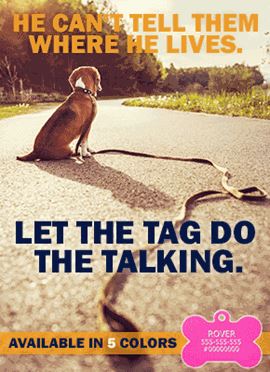
Deadly Sweets: Xylitol and Dogs
Come on, we all do it. When dogs become part of the family, we treat them more like human family members than canines. We may speak to dogs like children, we may even dress them in embarrassingly adorable Christmas sweaters for family photographs, but when it comes to food, we can't afford to treat dogs like people.
Since dogs rely on us for guidance, our job is to protect them, which includes identifying and removing potentially harmful foods from their environment. Although they are considered safe for human consumption, foods containing xylitol have been linked to a variety of serious medical conditions and disorders in dogs. Learning strategies to defend against, diagnose, and deal with potential xylitol poisoning can spare your dog’s health and prevent headache and heartache.
Defense: Poisoning Prevention
Made from fibers found commonly in plant sources, such as berries, mushrooms, hardwoods, and corncobs, xylitol populates the ingredients labels of numerous diabetic- and dieter-friendly human foods and health products (including candies, desserts, mints, gums, vitamins, toothpastes, and mouthwashes).
For humans, xylitol appears to be a healthy sugar alternative, retaining nearly the same amount of sweetness as regular sugar with 33 percent fewer calories. Xylitol substitution also reduces dental cavities in humans to as little as one-third when regularly substituted for sugar.
While there are a variety of foods that are healthy for both dogs and humans, even the smallest amount of the wrong food can wreak havoc on a dog's body. The chemical sweetener xylitol is especially toxic to dogs, a hundred times more poisonous than chocolate.
It is impossible to guard against every risk of ingestion, but vigilant owners can usually prevent accidental xylitol poisoning by identifying potential sources, removing them from view and reach, securing them safely from accidental access (spills and curious noses), and withholding them from pets.
For example, bubble gum, one of the most common human treats, contains xylitol. Gum-chewing owners should secure any gum in their cars, homes, pockets, or purses (storing the gum out of a dog’s reach). The enticing smell and sweet flavor may tempt dogs into gobbling up a pack, which could choke or poison a dog.
Baked goods and other desserts containing xylitol should be stored away from dogs. In fact, regardless of whether the candies and desserts contain xylitol, dogs should not eat sweet treats unless they are specifically made for canine consumption and are veterinarian-approved treats.
The pantry and the purse aren’t the only hazards, though. Some brands of toothpaste include xylitol for flavoring purposes, so veterinarians recommend dog-specific toothpaste when cleaning canine teeth. (If you’re unsure about a product’s safety, read the ingredients and always consult a veterinarian when your pet’s safety is in question.) Early preparation can prevent most problems; however, despite our best intentions and preparation, accidents can still happen.
Diagnosis
Although xylitol may be a healthy sugar alternative for humans, when it comes to dogs, xylitol is anything but a healthy choice. Since their metabolism is unique, dogs process xylitol in a very different way than humans.
Xylitol can cause a sudden release of insulin from the dog’s pancreas into the liver, fat cells, and muscles. As large amounts of glucose are taken from the blood cells, a dog may experience hypoglycemia within a half hour of ingestion. If left untreated, the condition can worsen, causing liver toxicity, lasting damage, and failure.
Xylitol ingestion can also cause a number of other health issues in dogs, ranging from mild to severe. Eating a food that contains as little as 0.1 grams of xylitol per kilogram of his body weight can poison a dog.
Once the dog's blood glucose levels are depleted from the insulin release, he may vomit as a means of expelling the poison from his body. The dog may show signs of muscle weakness, which can develop into ataxia (a lack of control over the muscles that may prevent the dog from walking).
Xylitol poisoning can trigger hypokalemia, a condition in which the canine body is unable to produce sufficient levels of potassium. The electrical processes that allow the muscles, nerves, and the heart to function properly in the dog’s body depend on potassium, and a deficiency could be life-threatening. Dogs may also experience epileptic seizures or a hypoglycemia-induced coma, if left untreated.
Dealing with a Problem
Xylitol can be fatal to dogs. If you suspect that your dog has consumed xylitol, contact an emergency veterinary care center or the Animal Poison Control Center immediately. The effects of xylitol can become increasingly severe the longer a dog keeps the sweetener in his system, and veterinarians will recommend immediate action. In cases of severe xylitol poisoning, professional treatment within an hour of ingestion provides the best chance for the dog’s survival and recovery.
If a dog recently ingested xylitol, the veterinarian may advise an owner to induce vomiting to expel as much of the poison as possible before further complications. (Inducing vomiting should be performed with a vet’s guidance.) A veterinarian will try to eliminate the remaining poison and restore normal body functions (stabilizing blood glucose and potassium levels). With immediate action, careful monitoring, and supportive care, dogs can survive xylitol poisoning.
Think Ahead
Even if you’ve xylitol-proofed your home and car, the threat of poisoning can still rear its ugly head during holidays. With Easter just around the corner, many families will swap Easter bunnies and candy baskets with loved ones. Remember to store holiday goodies securely, away from curious noses.
Buy a dog-appropriate treat to include your dog in the celebration, but keep the boundaries consistent. If your dog can’t resist the temptation to nibble at human sweets, place him in another room with his favorite toy while the candy is on display. Keep the holiday festive and safe by keeping the health of your four-legged family members in mind.
















